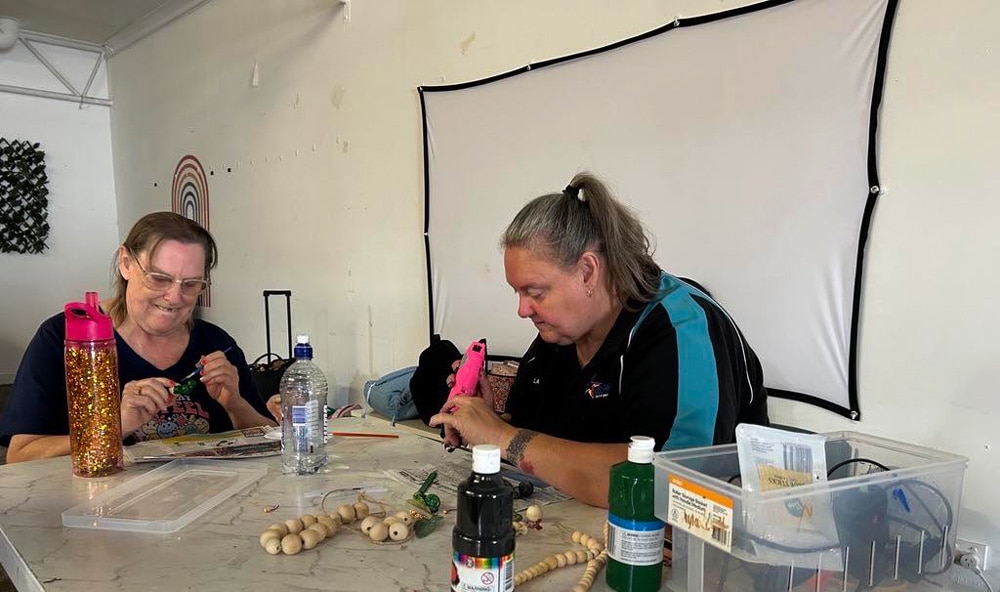Types Of Services Offered By NDIS Providers
The National Disability Insurance Scheme (NDIS) represents a transformative approach to disability support. It offers participants access to a wide range of services through registered providers. For many individuals and families, understanding the full scope of available services can seem overwhelming. This guide aims to clarify the various types of services offered by NDIS-registered providers.

Support Services For Daily Living
The foundation of NDIS services centres around supporting participants in their day-to-day lives so that they can maintain independence and engage with their communities. These services encompass a broad spectrum of support that adapts to individual needs and circumstances.
Daily living support remains one of the most crucial service categories offered by NDIS service providers. This can include assistance with personal care activities such as bathing, dressing, and grooming, which many participants require to start their day. Providers can also offer domestic assistance, helping with household management tasks like cleaning, laundry, and meal preparation. These services can be tailored to different levels of support, from minimal assistance to comprehensive care.
Transportation support forms another important component of daily living services. NDIS providers can assist participants in accessing their community, attending medical appointments, and participating in social activities. This might involve direct transport assistance or helping participants develop their independent travel skills using public transport where appropriate.
Respite Care Services
Respite care is an option for individuals requiring temporary support, which may also provide carers with time to attend to personal matters. This service is available in various formats and may be accessed for a short period or an extended stay, depending on the participant’s needs and the provider’s offerings.
NDIS service providers may offer different types of respite care, including:
- In-home respite care – A support worker may assist the participant in their home, helping maintain familiar surroundings.
- Community-based respite care – This may involve participation in structured activities in a community setting or shared accommodation.
- Facility-based respite care – Some providers may offer temporary stays in a respite care facility, where participants can access different forms of support.
For many participants and carers, respite care may be a way to introduce new experiences, access different environments, or engage with additional support workers. The availability and structure of respite services can vary between providers, and participants may explore different options to determine what aligns with their circumstances.
Day Programs For Skill Building & Social Inclusion
Day programs are structured activities that may support individuals in developing skills, engaging in social interactions, or participating in community-based experiences. These programs are typically tailored to different needs and preferences, with a focus on providing opportunities for engagement.
Day programs may include:
- Recreational activities – Some providers offer arts, music, sports, or outdoor activities as part of their programs.
- Life skills training – Certain programs focus on practical skills, such as cooking, money management, or personal organisation.
- Education & employment preparation – Some day programs may involve job-readiness training, communication workshops, or workplace skills development.
- Community participation – Programs may include outings, volunteering, or structured group activities designed to facilitate interaction.
The structure and focus of day programs can differ between providers, and participants may have the opportunity to explore a variety of options. These programs may align with broader NDIS goals related to engagement, skill-building, or independence, depending on individual circumstances and preferences.
Participants and carers seeking respite care or day program services may consider consulting with providers to discuss the available options.
Supported Independent Living (SIL) Accommodation
Supported Independent Living (SIL) is a type of NDIS support that may assist individuals who require help with daily tasks while living in a shared or individual accommodation setting. SIL accommodation is designed to provide participants with the opportunity to receive tailored support while maintaining a level of independence in their living environment.
SIL arrangements can vary based on individual needs, preferences, and the level of support required. Some of the common aspects of SIL accommodation may include:
- Shared housing options – Participants may live with others in a supported setting, where assistance is provided based on agreed-upon support needs.
- Individual accommodation – Some providers may offer SIL in a private residence, where participants receive one-on-one support tailored to their circumstances.
- Daily living assistance – Support workers may assist with tasks such as meal preparation, personal care, household management, and community access.
- Skill development opportunities – SIL arrangements may provide an environment where participants can work on building independence in areas such as decision-making, self-care, or household responsibilities.
The level of support in SIL accommodation is determined based on an individual’s needs and NDIS plan. Some participants may require 24/7 support, while others may need assistance only at certain times of the day. Providers offering SIL accommodation work with participants to develop a structure that aligns with their specific goals and requirements.
Looking For NDIS Providers In Newcastle?
Finding an NDIS provider is an important step in accessing the support and services that align with your needs. At Gleam Support Services, we work with participants across Newcastle to develop personalised NDIS support plans. Get in touch today to learn more about how we can assist you in navigating NDIS in Newcastle.







